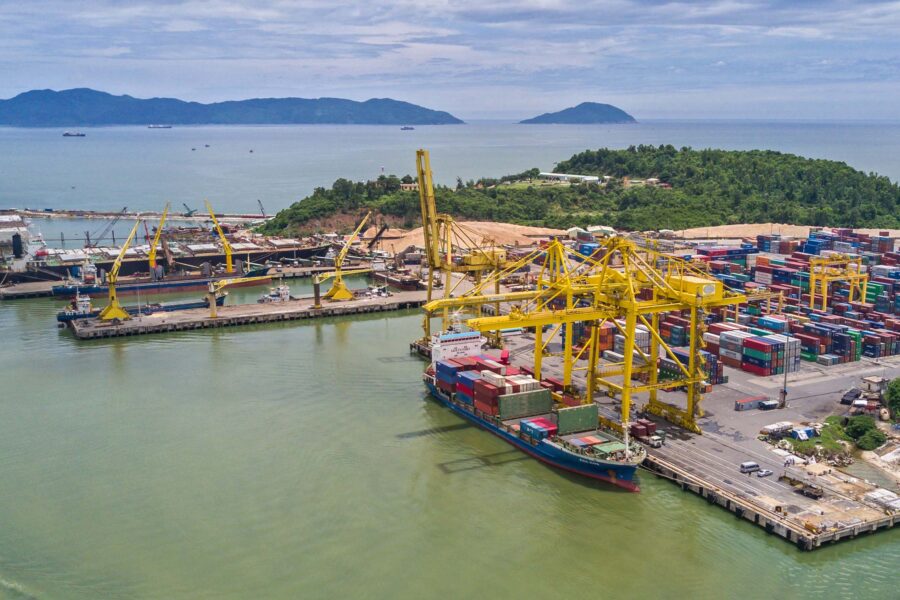A watershed for climate change stewardship?
Investors are losing patience with companies that are slow to act on climate. Through active stewardship, they can bring the laggards on to a 1.5ºC path
Financing

Of the 17 global Sustainable Development Goals (SDGs) for 2030, set out by the UN General Assembly in 2015, SDG 13 includes arguably some of the most challenging milestones to reach. Goal 13 relates to climate action: specifically, taking “urgent action to combat climate change and its impacts.”
The year 2021 may come to be viewed as a watershed for climate change and investor stewardship, with a Dutch court decision against Royal Dutch Shell, activist fund Engine No. 1’s proxy contest with Exxon, and majority support for a shareholder climate resolution at Chevron all occurring in May. With other recent developments, such as the International Energy Agency’s Net Zero by 2050 report – and COP26 now upon us – have we reached a tipping point for climate stewardship?
If we needed more evidence that the pandemic has served as a wake-up call on climate for businesses, investors, policymakers, and individuals, this year’s voting season emphatically provided that. Mainstream sentiment has shifted, and the momentum is with investors calling for faster action on climate change.
We have seen this in the growing number of investment managers – including the international business of Federated Hermes – committing to net zero as part of the Net Zero Asset Managers Initiative.1 Signatories pledge to work with their clients to reach a goal of net-zero greenhouse gas emissions by 2050 or sooner, in line with wider efforts to limit global warming to 1.5°C. With 128 signatories and around USD 43 trillion in assets, the initiative is close to representing almost half the global asset management sector in terms of total funds managed. Meanwhile, the UN-convened Net Zero Asset Owners Alliance has attracted over 40 institutional investors, representing over USD 6.6 trillion.
With climate transition votes on the agenda for the first time at some 18 annual shareholder meetings, the stage was set for a busy season of scrutinizing the fine detail of companies’ transition strategies. Aside from the growing investor concern, there is regulatory and societal pressure on companies to align more quickly with the goals of the Paris Agreement, but as yet no established consensus or unified framework to guide an assessment of how aligned companies are. This presented investors with an analytical challenge and allowed some companies to win votes for transition plans that in our view had significant gaps or were misaligned.
Central banks, policymakers, and other financial standard setters are now cognizant that climate change poses a systemic risk – one that could be far more severe than the economic hit from the pandemic. Addressing it will require a multi-faceted response – from cutting carbon emissions and improving the assessment and reporting of climate risks, to reducing the impact from issues such as deforestation, and rewiring the global financial system to support the transition to a low-carbon economy.
Votes on climate transition plans
This voting season saw a series of formal shareholder votes on companies’ climate transition plans in the US, Canada, the UK, France, and Spain, among others. This followed attempts in recent years to improve investor scrutiny of companies’ actions on climate, and reflected the rapid expansion in company commitments to achieving net-zero emissions.
While we were supportive of the idea in principle, we had some initial concerns about the concept. The high level of support for transition plans suggests these concerns were justified. There is a tendency for investors to vote in line with management, which may suggest they do not have the technical skills or the time to evaluate plans properly. One of the biggest dilemmas is how to balance the absolute performance of the company in terms of its commitments and how Paris-aligned these are, against its general momentum on climate.
We decided to apply a more rigorous approach in our assessment of transition plans, setting a robust standard of alignment to the Paris Agreement goals for companies to pass. This meant that we recommended voting against some high-profile names, including Total, Glencore, Shell, and Aena.2
To an extent, high levels of investor support for such plans should have been expected as most of the companies targeted were considered “leading” on the climate transition in their sector. However, few companies came out of the process unscathed, given the public scrutiny. More investors are asking for such votes as an accountability mechanism, and we are seeing more large asset managers backing shareholder proposals calling for scope 3 targets or supporting shareholder-proposed directors with a view to improving the company’s stance on climate change. However, there is still work to do to ensure that more investors understand what it takes to be Paris-aligned.
Leaders and laggards
In March, Climate Action 100+ issued its net-zero benchmark for the world’s largest carbon emitters.3 This defined the key indicators of success for business alignment with a net-zero emissions future and the Paris Agreement goals.
The benchmark, which we reviewed and commented on in the design phase, set clear engagement priorities to drive faster climate action. However, the benchmark assessments showed that no company had fully disclosed how it would achieve its goals to become a net-zero business by 2050 or sooner. The plan is to refine and expand the benchmark over time and it is likely to become a key test for companies. EOS has continued its leadership on climate change engagement and voting by developing and testing its own assessments of companies and reflecting this in its voting recommendations.
We have had a formal climate change voting policy in place since 2019, using the Transition Pathway Initiative (TPI) scoring system. While valuable, this assessment is reasonably limited in scope and in 2021 we expanded our policy to draw on a broader assessment of companies’ actions.
The EOS climate voting policy contains a number of components that target different parts of the system, where we believe a company’s actions to be materially misaligned with the goals of the Paris Agreement, including companies contributing to coal expansion and deforestation.
Given the growing momentum on this issue and with COP26 now upon us, companies stubbornly refusing to accept that climate change is something that they must address will be increasingly exposed – and vulnerable to accelerated policy changes and lawsuits. Investors are losing patience with the laggards, and a company’s failure to pick up the pace could prove value destructive. This could happen sooner than some companies seem to think.
1. www.netzeroassetmanagers.org
2. Please refer to page 21 in our Q2 2021 Public Engagement Report for more details.
About Federated Hermes

A global leader in active, responsible investment
By pioneering global stewardship, developing innovative ESG strategies and advocating for a financial system that works for all, the international business of Federated Hermes has been at the forefront of investment and sustainability since 1983.
We provide specialised capabilities across equity, fixed income and private markets, in addition to multi-asset strategies and proven liquidity-management solutions.
Through our world-leading stewardship services, we engage companies on strategic and sustainability concerns to promote investors’ long-term performance and fiduciary interests.
Our goals are to help individuals invest and retire better, to help clients achieve better risk-adjusted returns, and to contribute to positive outcomes in the wider world.
Find out more
Disclaimer: For professional investors only. This is a marketing communication. Hermes Equity Ownership Services Limited (“EOS”) does not carry out any regulated activities. This document is for information purposes only. It pays no regard to any specific investment objectives, financial situation, or particular needs of any specific recipient. EOS does not provide investment advice and no action should be taken or omitted to be taken in reliance upon information in this document. Any opinions expressed may change. EOS has its registered office at Sixth Floor, 150 Cheapside, London EC2V 6ET.





